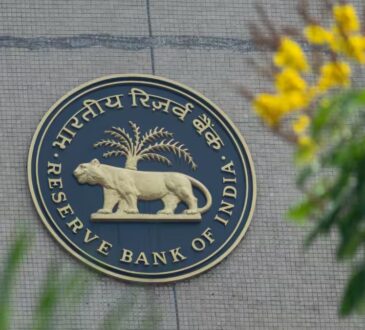
RBI Changes FEMA Regulations to enable Exporters open Foreign Currency Accounts in IFSCs: Legal and Policy Analysis
Introduction
The new regulations in the foreign exchange management model of India are a result of a policy change by the Reserve Bank of India, a few weeks back, in the form of the revision of the Foreign Exchange Management ( Foreign Currency Accounts by a Person Resident in India) Regulations, 2015. Under this amendment, Indian exporters are able to open and keep foreign currency accounts in foreign banks functioning in International Financial Services Centres (IFSCs). It is a significant move towards trade facilitation and it is in line with the government agenda of increasing its exports and facilitating easy transactions between the country and other nations. This paper discusses legal framework pertaining to the management of foreign exchange, evaluates recent changes, and reviews their effects on the Indian exporters and the economy in general.
Legal Structure in Foreign Exchange in India.
The Indian foreign exchange laws are mainly controlled by the Foreign Exchange Management Act, 1999 (FEMA), which supersedes the previous foreign exchange law, the Foreign Exchange Regulation Act, 1973 (FERA). The motive behind FEMA was to carry out external trade and payments as well as ensure the orderly development and upkeep of the foreign exchange market in India [1]. Compared to FERA, which was a strict law and criminal offences were made in the legislation, FEMA is more liberalized and regards contraventions as civil crimes.
The FEMA Act gives the powers to regulate the foreign exchange transactions and frame suitable regulations to the Reserve Bank of India. In Section 6 of FEMA, the RBI has the power to indicate how and under what circumstances an individual residing in India may possess, own, transfer, or invest in foreign currency [2]. RBI has passed many provisions under FEMA, which involve the current account transactions, capital account transactions, export and import of goods and services, and foreign currency accounts.
International Financial Services Centre
An International Financial Services Centre (IFSC) is a jurisdiction that offers financial services to both non-residents and residents which involve the movement of finance, financial products as well as services across borders. The inaugural IFSC of India is located in the state of Gujarat, Gandhinagar in the Gujarat International Finance Tec-City (GIFT City). The IFSC is a Special Economic Zone within the GIFT City, and is providing a range of incentives such as tax benefits and lenient regulatory standards [3].
The IFSCA was founded by the International Financial Services Centres Authority Act, 2019 to be a single regulator of all financial services in IFSCs in India [4]. This harmonized regulatory framework is done to enable Indian IFSCs to be competitive to other financial centers in the world such as Singapore and Dubai.
The Major Characteristics of the Amendments
The new change in the regulation of FEMA brings some key provisions which are beneficial to the Indian exporters. First, it allows the exporters to open and operate foreign currency accounts with banks based in IFSCs. It implies that exporters can now save their export earnings in foreign currency in the Indian regulatory framework and not convert them to Indian Rupees instantaneously or have foreign accounts.
Second, this amendment enables the exporters to make payments in respect of importation of goods and services using these foreign exchange accounts. This has led to a natural hedge process where the exporters who are also importers of goods or raw materials they can directly use their foreign currency earnings to obtain imports without incurring the cost of conversion to foreign currencies.
Third, the regulations are flexible in terms of handling the foreign exchange exposure. The exporters are able to hold the foreign currency and utilize it on the time when the exchange rates favor them, which gives them a better option in managing the treasury. This is especially helpful in the case of companies that have periodic import-export patterns.
Advantages to Indian Exporters.
The amendment has several benefits to the Indian exporters. Cost of transacting costs is reduced which is the greatest advantage. In the past, exporters were required to exchange their foreign earnings in Indian rupees only to re-exchange back in case of a foreign payment. Every conversion will entail transaction costs and spreads charged by banks. Exporters would be able to take advantage of these various conversion costs by keeping foreign currency accounts [5].
Exchange rate volatility protection is also another benefit of the scale. The Indian Rupee is unstable in relation to the major currencies and such changes can severely affect the profit levels of exporters. Having foreign currency accounts, exporters have time to convert during the best moments and manage the foreign exchange risk.
Operation processes are also made simpler by the amendment. The exporters are not required to keep accounts in other jurisdictions that may require complicated documentation, increased costs and multiple countries regulations. Holding accounts in IFSCs in India is more advantageous with reduced regulatory burdens and improved supervision.
Moreover, this action contributes to the improvement of liquidity. The exporters who hold the foreign currency accounts are able to get timely funds to settle the import bills or any other foreign currency liabilities without delays of conversion procedures. This enhances the efficiency of working capital and flexibility of operation.
The IFSCs can facilitate trade in a number of ways.
The role of International Financial Services Centres is to facilitate in cross-border trade and financial transactions. The RBI is using such specialized financial zones to facilitate trade, by enabling the exporters to open foreign currency accounts in IFSCs. The ifscs provide infrastructure, technology and regulatory environment akin to international financial hubs but under the domestic jurisdiction of India.
Since there are no stringent regulatory requirements in the zones, banks operating in IFSCs are able to provide competitive foreign exchange rates and reduce cost of transactions as opposed to banks operating in home countries. This brings about a win-win situation in which the exporters will be provided with favorable pricing and the IFSCs will get more business, thus expanding the financial services industry of India [6].
Regulatory Safeguards and Compliance Requirements
Although the amendment will liberalize foreign currency account holding by exporters, it does not compromise the accompanying regulatory protection. The exporters have to adhere to the current FEMA statutes on repatriation and export proceed reporting. Their accounts have to be opened in authorized dealer banks which have already been operating in the IFSCs as well as the transactions are kept under the banks controlled system.
RBI exercises control by requiring reporting and periodical review. Banks within the IFSCs are expected to keep adequate records and present their transactions to the RBI as it is required by FEMA regulations. This makes sure that even as they give the exporters operational flexibility, the regulations framework does not allow its abuse or lose track in the foreign exchange transactions [7].
In comparison with Global Practices
A large number of countries permit their exporters to open foreign currency accounts in order to trade. The United Arab Emirates, Singapore and Hong Kong are well-established in terms of multi-currency accounts frameworks. This international practice is in line with the move by India and this makes the Indian exporters more competitive in the global markets.
India however is more circumspect with its approach where it first aims at accounts on IFSCs as opposed to unrestricted foreign currency accounts nationwide. This gradual process enables government to gauge the effects and in the event there are obstacles curb them prior to a wider liberalization.
Implications on the Export Growth of India.
Such a regulatory reform is likely to play in the favour of the export growth trend of India. The amendment will make Indian exporters more competitive in the world by lowering the cost of conducting business and offering both superior and superior foreign exchange management tools. Small and medium enterprises that are highly sensitive to transaction costs would be the major beneficiaries.
The measure also sustains the vision of the government of India to make India a manufacturing hub with the initiatives such as Make in India. Business organizations who deal with importation of raw materials and export of finished products are now able to manage both their foreign exchange cycles much better which enhances profitability and competitiveness.
Conclusion
The change in FEMA regulations by the RBI that enables the exporters to open foreign currency accounts in IFSC is an enlightened move in the India foreign exchange management policy. The goals of the trade facilitation and regulatory oversight are balanced in this reform. Through the use of IFSCs as financial hubs, the policy helps exporters to have flexibility in operations without affecting transactions outside the regulatory framework of India.
This amendment allows a cut in transaction costs, hedges them against exchange rate risks, streamlines the operation, and increases liquidity management on the part of the exporters. It makes India in line with the world standards and helps the expansion of IFSCs as competitive financial centres.
Such regulatory reforms that lessen friction in the cross-border transactions are necessary as India seeks to grow its share of the global trade. The outcome of this program will be determined by efficient execution, proper banking facilities in IFSCs, and sustained interactions with the stakeholders to resolve new challenges. On the whole, the amendment represents a significant step in the path to achieving even more liberalized and efficient foreign exchange management regime that would contribute to the economic development of the country and its integration into the world markets.
References
[1] The Foreign Exchange Management Act, Act No. 42 of 1999, § 2(c) (India).
[2] The Foreign Exchange Management Act, Act No. 42 of 1999, § 6 (India).
[3] Special Economic Zones Act, Act No. 28 of 2005, § 2(za) (India).
[4] The International Financial Services Centres Authority Act, Act No. 50 of 2019, § 4 (India).
[5] Reserve Bank of India, Foreign Exchange Management (Foreign Currency Accounts by a Person Resident in India) Regulations, 2015, Notification No. FEMA 10(R)/2015-RB (May 26, 2015).
[6] Ministry of Finance, Department of Economic Affairs, Report of the Working Group on Foreign Investment (2019), available at https://www.dea.gov.in.
[7] Reserve Bank of India, Master Direction on Export of Goods and Services, RBI/FED/2015-16/14 (Jan. 1, 2016), available at https://www.rbi.org.in.
****
By Adv. Chandni Joshi | Advocate, Gujarat High Court | Email: aaditya.bhatt@bhattandjoshiassociates.com




